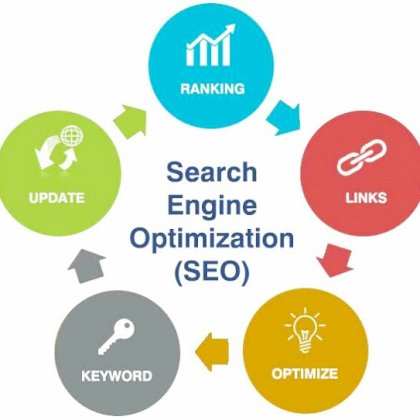Does SEO Require Financial Investment?The Value of SEO

does seo cost money In today's digital age, having an online presence is crucial for businesses. One of the most effective ways to increase visibility and attract organic traffic to a website is through search engine optimization (SEO). However, the question arises, does SEO cost money? The answer is not a straightforward one. While there are ways to implement SEO strategies at little to no cost, such as optimizing website content and building backlinks organically, there are also paid methods that can yield faster and more significant results, such as hiring an SEO expert or investing in paid advertising. Ultimately, the cost of SEO depends on the specific goals and resources of each individual or company.
When it comes to increasing online visibility and driving organic traffic to your website, SEO plays a crucial role. However, one question that arises frequently is whether SEO requires a financial investment. In this article, we will delve into the various aspects of the cost of SEO and shed light on the factors that determine its expenses.
First and foremost, it is essential to understand that SEO can be approached in two ways - through hiring an in-house SEO team or outsourcing the task to a professional SEO agency. Both options come with their own set of costs and benefits.
For those considering an in-house SEO team, the primary expense lies in hiring and maintaining a skilled SEO professional or a team. This includes salaries, benefits, and any additional training or resources required. While having an in-house team provides more control and immediate response, it can significantly impact your budget.
On the other hand, outsourcing SEO can be a cost-effective solution for businesses with budget constraints. By choosing the right SEO agency, you gain access to a team of experts who specialize in utilizing different SEO techniques. These agencies often offer comprehensive packages that cater to your specific needs.
Another crucial aspect to consider is the depth of SEO required for your website. Basic SEO techniques such as optimizing meta tags, headings, and keywords can be executed with minimal financial investment. However, if you're targeting competitive keywords or aiming for a comprehensive SEO strategy, it might require a more significant financial commitment.
Moreover, investing in high-quality content creation is an integral part of successful SEO. Generating informative, engaging, and relevant content is crucial for attracting both visitors and search engine crawlers. While content creation itself may not require a substantial financial investment, ensuring its promotion and distribution might involve additional costs.
It is important to note that the results of SEO efforts are not immediate. SEO is a long-term strategy that requires consistent effort, monitoring, and adjustments. Therefore, it is crucial to allocate a budget for ongoing SEO activities to ensure continuous improvement and to stay competitive in the ever-evolving digital landscape.
In conclusion, while SEO does require a financial investment, the costs can vary depending on your approach, the depth of SEO required, and the goals of your website. Whether you choose an in-house team or outsource to an agency, strategic budget allocation is necessary for achieving long-term success. By understanding the cost of SEO and approaching it with a well-structured plan, you can leverage its benefits and enhance your online presence.
Debunking the Myths: Is SEO a Free Marketing Strategy?
When it comes to marketing strategies, there is one term that frequently comes up: SEO. But what exactly is SEO, and is it really a free marketing strategy? In this article, we will debunk some of the common myths surrounding SEO and shed light on its real cost and value.
The Truth Behind SEO
Before we dive into the myths, let's start by understanding what SEO is all about. SEO, or Search Engine Optimization, is the practice of improving the visibility and ranking of a website in search engine results pages (SERPs). This is achieved through various techniques such as keyword optimization, creating high-quality content, and building backlinks.
Myth #1: SEO is Free
One of the biggest misconceptions about SEO is that it is a free marketing strategy. While it's true that you don't have to pay directly for organic search engine traffic, implementing effective SEO techniques requires time, effort, and resources. Whether you choose to do it yourself or hire an SEO agency, there are costs associated with optimizing your website for search engines.
Myth #2: SEO Guarantees Immediate Results
Another myth surrounding SEO is that it guarantees immediate results. In reality, SEO is a long-term strategy that requires patience and persistence. Achieving significant improvements in search engine rankings takes time. It involves monitoring and analyzing data, adapting strategies, and continuously optimizing your website to stay ahead in the ever-changing SEO landscape.
Myth #3: SEO is Just About Keywords
Contrary to popular belief, SEO is not just about stuffing keywords into your content. While keywords play a crucial role in SEO, search engines have become smarter at understanding user intent. Today, search algorithms focus more on delivering relevant and valuable content to users. It's important to create high-quality content that answers users' queries and provides them with valuable information.
Now that we have debunked some of the myths, let's talk about the real value of SEO. When done right, SEO can yield tremendous benefits for your business. Here are a few reasons why SEO is worth the investment:
- Increased Website Traffic: By optimizing your website for search engines, you can attract organic traffic and reach a wider audience.
- Better User Experience: SEO involves optimizing your website's structure, navigation, and loading speed, which improves the overall user experience.
- Brand Authority: When your website consistently appears in top search results, it builds trust and establishes your brand as an authority in your industry.
- Cost-Effective: Compared to other marketing strategies like PPC advertising, SEO provides long-term benefits at a lower cost.
In conclusion, SEO is not a free marketing strategy, but it is a valuable investment for businesses. By understanding the truth behind SEO and avoiding the common myths, you can harness its power to drive organic traffic, improve user experience, and establish your brand's authority in the online world.
Weighing the Benefits: Is Investing in SEO Worth the Cost?
In today's digital landscape, businesses are constantly searching for effective strategies to improve their online presence and drive more traffic to their websites. One of the most popular methods is investing in search engine optimization, or SEO. But with the ever-changing algorithms and intense competition, is investing in SEO worth the cost? Let's take a closer look at the benefits and weigh them against the potential drawbacks.
First and foremost, SEO is a long-term investment that can yield significant benefits over time. By optimizing your website for search engines, you can improve your organic rankings and attract more targeted traffic. This increased visibility can lead to higher conversion rates and ultimately, more sales and revenue.
Additionally, investing in SEO can enhance the user experience of your website. When you optimize your site's speed, navigation, and overall functionality, it not only pleases search engines but also improves the satisfaction of your visitors. A seamless and user-friendly website can increase engagement and encourage repeat visits, further boosting your chances of success.
Furthermore, effective SEO techniques can establish your brand as a credible authority in your industry. By consistently providing valuable and relevant content to your audience, you can build trust and loyalty. This can result in higher brand awareness, more customer referrals, and a stronger reputation in the market.
While the benefits of SEO are plentiful, it's important to consider the potential drawbacks. SEO is a constantly evolving field, and what might work today could become obsolete tomorrow. Staying up to date with the latest algorithm changes and best practices can be time-consuming and resource-intensive.
Another factor to consider is the level of competition in your industry. If you operate in a niche with few competitors, SEO might yield quicker and more significant results. However, if you're in an industry with fierce competition, it may take longer to see the desired outcomes.
In conclusion, investing in SEO can be a worthwhile decision for businesses looking to improve their online presence. The long-term benefits, such as increased website traffic, improved user experience, and enhanced brand credibility, outweigh the potential drawbacks. However, it's crucial to stay informed about the ever-changing landscape and adapt your strategies accordingly. By weighing the benefits against the costs and considering the unique factors in your industry, you can make an informed decision about whether SEO is worth the investment.
| Pros and Cons of Investing in SEO | |
|---|---|
| Pros | Cons |
|
|
Budgeting for SEO: How Much Does it Typically Cost?
When it comes to establishing an effective online presence, Search Engine Optimization (SEO) plays a crucial role. But, how much should you budget for this essential digital marketing strategy? Understanding the typical costs associated with SEO can help you allocate your resources effectively and maximize your return on investment.
SEO costs can vary widely depending on several factors. These factors include the competitiveness of your industry, the size of your website, and the scope of your SEO goals. To give you a better idea, let's dive into the different aspects that contribute to SEO expenses.
- Keyword Research: A solid foundation for any SEO campaign starts with thorough keyword research. Identifying the right keywords that are relevant to your business and have significant search volume is essential. Keyword research tools and expert analysis are often necessary to find these valuable keywords.
- On-Page Optimization: On-page optimization entails optimizing your website's content and structure to achieve better search engine rankings. This includes optimizing meta tags, headings, URL structures, and keyword placement within your content. On-page optimization also extends to improving your website's loading speed, mobile responsiveness, and overall user experience.
- Off-Page Optimization: Off-page optimization focuses on building high-quality backlinks to your website. Backlinks from reputable and authoritative websites can significantly boost your website's credibility and visibility in search engine results. Acquiring these backlinks often requires outreach to relevant websites, guest posting, and other link building strategies.
- Content Creation: Creating high-quality and engaging content is a crucial aspect of SEO. This not only attracts visitors to your website but also encourages them to stay longer and interact with your brand. From blog posts to infographics, video content to whitepapers, your content should be informative, valuable, and shareable.
- Technical SEO: Technical SEO ensures that your website is properly optimized for search engine crawlers. It involves optimizing website speed, fixing broken links, improving crawlability, and implementing structured data markup. Technical SEO helps search engines understand and index your website effectively.
- Monitoring and Reporting: Tracking the performance of your SEO efforts is essential to measure success and make informed decisions. Monthly SEO reports, keyword ranking tracking, and analytics monitoring provide valuable insights into the effectiveness of your strategy. These reports aid in identifying areas that require further optimization and investment.
It's important to note that while SEO is a long-term strategy, the costs associated with it are not one-size-fits-all. Depending on your specific requirements and objectives, you may opt for a one-time SEO audit or an ongoing monthly retainer with an agency. Discussing your goals with a reputable SEO professional will help determine the best approach for your business.
Remember, investing in SEO is not just about the immediate costs - it's about investing in the future growth and success of your online presence. Prioritize your budget based on your business goals, and remember that SEO is a continuous process that requires consistent effort and adaptation.
So, how much should you budget for SEO? It ultimately depends on your unique circumstances and desired outcomes. Working with an experienced SEO provider can help you navigate the complexities and determine the best investment for your business's digital growth.
SEO Pricing Models: Exploring Different Options and Their Effectiveness
In the world of search engine optimization (SEO), businesses often face the challenge of choosing the right pricing model for their needs. With numerous options available, it's important to understand the effectiveness of each model in achieving desired results. In this article, we will explore different SEO pricing models and evaluate their effectiveness in improving online visibility and driving organic traffic to your website.
Before delving into specific pricing models, let's first clarify the importance of SEO and why it should be a priority for businesses. In today's digital landscape, a strong online presence is crucial for success. With millions of websites competing for attention, it's essential to optimize your site to rank higher in search engine results pages (SERPs) and attract organic traffic.
When it comes to SEO pricing models, there are several options to consider:
| Model | Description | Effectiveness |
|---|---|---|
| Hourly | This model charges clients based on the number of hours spent on SEO activities. It provides flexibility for small businesses with limited budgets, but the effectiveness may vary depending on the expertise of the SEO professional. | Varies |
| Monthly Retainer | In this model, clients pay a fixed monthly fee in exchange for ongoing SEO services. It offers predictability in costs and allows for consistent optimization efforts, leading to improved long-term results. | High |
| Project-Based | With this model, clients pay a one-time fee for a specific SEO project, such as website audit, keyword research, or content optimization. It's suitable for short-term initiatives and can be effective when executed properly. | Depends on project complexity |
| Performance-Based | This model ties the payment to the actual performance of the SEO campaign. Clients only pay when specific results, such as improved rankings or increased organic traffic, are achieved. It provides a strong incentive for the SEO provider to deliver optimal results. | High |
It's worth mentioning that each pricing model has its pros and cons, and the most suitable option depends on your specific business goals, budget, and the expertise of the SEO professional you hire. It's crucial to thoroughly evaluate the capabilities of the SEO provider and consider the long-term benefits of each model.
When choosing an SEO pricing model, keep in mind that organic traffic and improved visibility take time to build. SEO is not a quick fix but a long-term investment that requires continuous effort and adaptability to the ever-changing algorithms of search engines.
Additionally, it's important to monitor the progress of your SEO campaign and assess its effectiveness. Regular reporting and analysis of key metrics, such as keyword rankings, organic traffic, and conversion rates, will help you make informed decisions and adjust your strategy as needed.
In conclusion, selecting the right SEO pricing model can significantly impact the success of your online presence. By exploring different options and assessing their effectiveness, you can make an informed decision that aligns with your goals and budget. Remember, SEO is a continuous process, and choosing the right pricing model is just one step towards achieving long-term online success.
For more information on SEO pricing models, you can visit (SEO Pricing Models).
Frequently Asked Questions
Yes, SEO can cost money. However, the cost of SEO can vary depending on several factors such as the competitiveness of keywords, the complexity of the website, and the scope of the SEO campaign. It is important to invest in SEO as it can greatly improve your website's visibility and organic traffic, leading to higher chances of conversions and business growth.
Investing in SEO can bring numerous benefits to your website and business. It can improve your website's visibility in search engine results pages, increase organic traffic, enhance online presence, build brand credibility and trust, generate quality leads, and ultimately boost conversions and revenue.
The time it takes to see results from SEO can vary depending on various factors such as the competitiveness of keywords, the quality of optimization efforts, the age and authority of the website, and the frequency of search engine algorithm updates. Generally, it can take several months to start seeing significant improvements in rankings and organic traffic.
SEO is not a one-time investment. It requires ongoing efforts and continuous optimization to maintain and improve your website's visibility and rankings in search engine results pages. SEO involves activities such as keyword research, on-page optimization, content creation, link building, technical optimization, and monitoring and adjusting strategies based on data and search engine algorithm updates.
Yes, you can do SEO yourself if you have the knowledge, time, and resources to dedicate to it. SEO involves various technical and strategic elements, including keyword research, on-page optimization, content creation, link building, and more. It requires staying updated with industry trends and search engine algorithms. However, considering the complexity and ever-changing nature of SEO, many businesses prefer to hire professional SEO agencies or experts to ensure effective and efficient optimization.
While SEO is generally safe and beneficial, there are some risks involved if improper techniques are used. Black hat SEO practices, such as keyword stuffing, hidden text, and spammy link building, can lead to penalties and negative impacts on your website's rankings and visibility. It is important to adhere to ethical and white hat SEO practices to avoid such risks and ensure long-term success in search engine optimization.
No SEO agency or expert can guarantee top rankings in search engine results pages. SEO involves various factors and algorithms that are controlled by search engine providers. While effective and ethical SEO techniques can significantly improve your website's visibility and rankings, there is no absolute guarantee of obtaining top positions. It is important to focus on optimizing your website, creating valuable content, and providing a great user experience.
SEO primarily focuses on optimizing websites for search engines, and Google is the dominant search engine with the largest market share. However, SEO strategies and techniques can be applied to other search engines as well, such as Bing and Yahoo. It is essential to consider the specific ranking factors and algorithms of each search engine to ensure comprehensive optimization and visibility.
While SEO is focused on organic search results and improving visibility through non-paid efforts, investing in paid advertising can complement your SEO efforts and provide additional exposure. Paid advertising, such as Google Ads, can help boost immediate visibility and drive targeted traffic to your website. It is advisable to integrate both SEO and paid advertising strategies to maximize your online presence and achieve optimal results.
The success of your SEO efforts can be measured using various metrics and tools. Key performance indicators (KPIs) such as organic traffic, keyword rankings, conversion rates, bounce rates, and engagement metrics can provide insights into the effectiveness of your SEO strategies. Tools like Google Analytics, Google Search Console, and third-party SEO software can help track and analyze these metrics, allowing you to monitor progress, identify areas for improvement, and make data-driven optimization decisions.
 English
English
 Turkish
Turkish 























